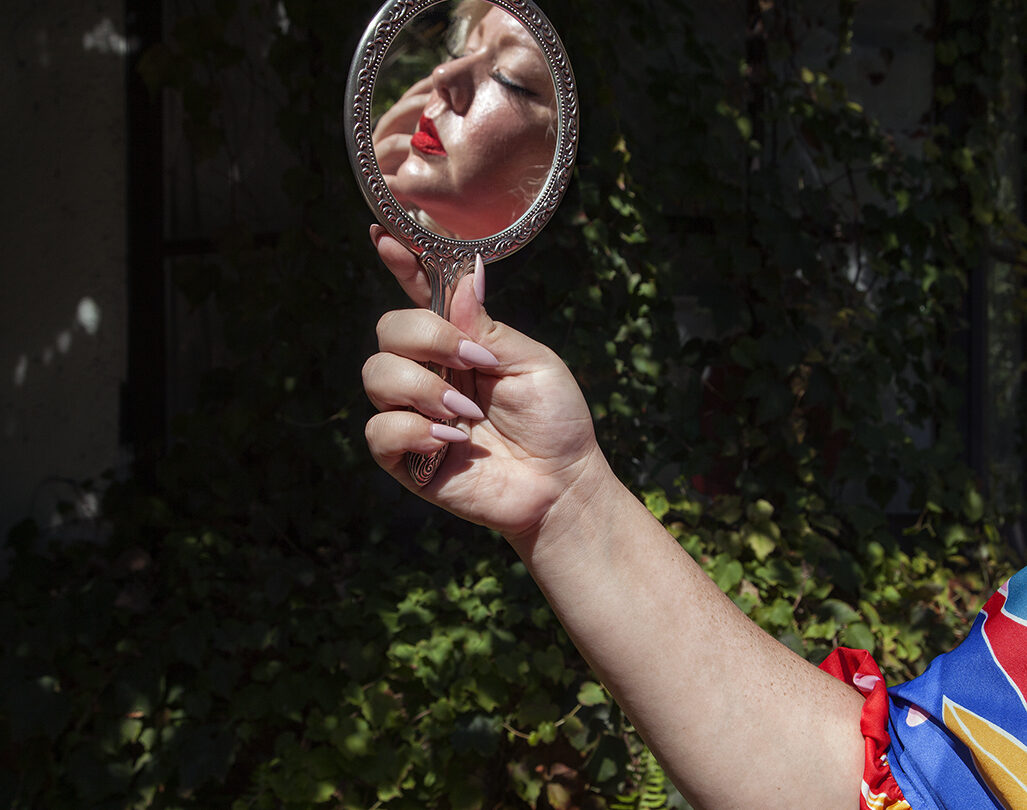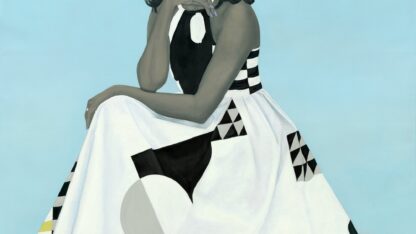Genevieve Gaignard's new exhibit 'This is America' on view at Atlanta Contemporary

In 2018, Donald Glover, a.k.a. Childish Gambino, released the viral hit song “This is America,” a razor-sharp commentary on contemporary society. In a nod to his incisive work, artist Genevieve Gaignard presents a new exhibition, “This is America: The Unsettling Contradictions in American Identity,” at the Atlanta Contemporary Art Center from Feb. 12 – May 15. It’s the first solo exhibition of the multidisciplinary artist’s photography and installation work, through which she unravels the ongoing issues complicating the identities and representations of Americans. Gaignard joined “City Lights” host Lois Reitzes via Zoom and curator Karen Comer Lowe to talk about the artist’s new contributions to Atlanta Contemporary.
How race informs the artwork of Gaignard, who is biracial:
“Once you look at it, I think it’s everything. I’m really interested in owning both sides of my story, and so I don’t really tiptoe around those things,” said Gaignard.
“There’s a lot of us out there, navigating life in a way that we’re not easily put into a box for other folks. So the way it affects me isn’t something I can, for me, put into a sentence or words, and that’s why my art has been this beautiful tool for me to work through those things and the complexities of it, and at the same time, be able to connect with other people through the art.”
A window into Gaignard’s complex visual microcosms of identity:
“I think ‘unsettling’ maybe kind of finds its way through all of the work that I create,” said Gaignard. “Over the years, I’ve kind of really honed in on specific materials that lend themselves to help describe the things that I’m interested in. I’m often pulling from vintage or historical magazines for my collage work, specifically, to talk about how we like to say we’ve come so far, but I’m able to comment on things happening today with imagery from the past that align as if we haven’t really come that far.”
“When I say identify as a woman of color, but people see me as a white woman, I then put on these different costumes, characters, however, you want to describe it, to show the viewer just how easily any of us can fold into these different parts of ourselves or some sort of a stereotype that others put on us.”
How art presents opportunities for reflection:
“I think of the environment as almost these psychological spaces, but I’m using things that are nostalgic, so you feel like it’s home,” said Gaignard. “So it creates this safe space to unpack harder issues that, until more recently, we really just haven’t been able to sit down and talk about … It’s almost like the work doubles as a mirror to the viewer, to kind of check in with themselves, their stance on things. And some of us aren’t always aware of how we’re showing up.”
“I think it’s so interesting when you can look at some of these objects and items, and … the messages that the things sent to you. In one of her installations, like, the wallpaper was just shockingly racist, and she told me it was from the 1970s, and that was just shocking to me,” said Lowe. “These aren’t things that she made or imagined. They’re from our history and recent history.”
“This is America: The Unsettling Contradictions in American Identity,” a solo exhibition of multimedia works by Genevieve Gaignard, shows at Atlanta Contemporary from Feb. 12 – May 15, with a press preview on Feb. 11. More information can be found at atlantacontemporary.org/exhibitions/genevieve-gaignard.








